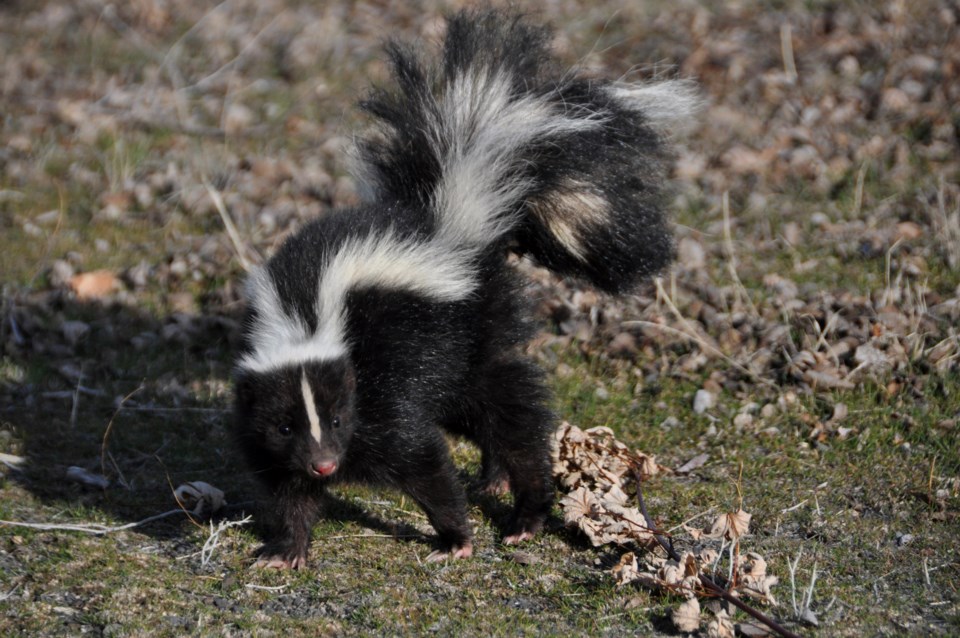A skunk found Monday, Sept. 9, near Gifford Drive in northwest Longmont has tested positive for rabies after a resident reported the animal acting aggressively toward her in her backyard.
The resident retreated inside her home while her dog “engaged” with the skunk, according to a Boulder County Public Health news release.
The resident contacted the city of Longmont animal control, who then called Boulder County Public Health, and the skunk was sent for testing, the news release stated.
Boulder County Public Health is asking any resident in the area to contact BCPH if they had any contact with the skunk or if a domestic animal had any contact or injuries from an unknown source.
Although the rabid skunk had no known contact with humans, it did interact with a pet, the news release states. If pets are not vaccinated against rabies, exposure to an infected animal can be fatal.
The owner's dog was up-to-date on its rabies vaccine and received a booster on the day it engaged the skunk, said BCPH spokeswoman Angela Simental in an email.
“It is vital to make sure your dogs, cats, horses and valuable livestock have a current rabies vaccination,” said Carol McInnes, Boulder County Public Health Environmental Health Specialist, in the news release. “Timely vaccination is the most important and effective way to protect everyone from contracting rabies. Pets with no rabies vaccination that come into contact with a rabid animal may need to be euthanized or placed in a four-month quarantine at the owner’s expense.”
Terrestrial rabies, such as skunk rabies, is carried by animals that travel predominantly on the ground. Skunks have been a significant source of rabies throughout eastern Colorado in the last few years, now including the Front Range, the news release states. Other types of wild animals that may carry rabies include bats, raccoons and foxes.
Exposure to rabies is generally the result of a bite or scratch by an infected animal that may be practically undetectable, such as a tiny puncture of the skin by a bat. Treatment for rabies exposure involves a series of vaccinations, the news release states.
Public health officials recommend the following precautions to reduce the risk of exposure to rabies:
- Do not handle unfamiliar animals, wild or domestic, even if they appear friendly. Contact animal control to collect the animal.
- Thoroughly wash any wound caused by an animal with soap and water and seek medical attention immediately.
- Keep vaccinations current for all dogs, cats and ferrets.
- Maintain control of pets by keeping them indoors when possible and keeping dogs under direct supervision when outside.
- Teach children to leave wildlife alone.
- Do not leave pet food or livestock feed in areas that are accessible to wildlife.
- If a person or pet has been bitten by or has had contact with a skunk or wild animal, seek medical care immediately, and then contact your local animal control agency or BCPH to arrange for rabies testing.
For more information about rabies, visit www.BoulderCountyVector.org or call 303-441-1564.



